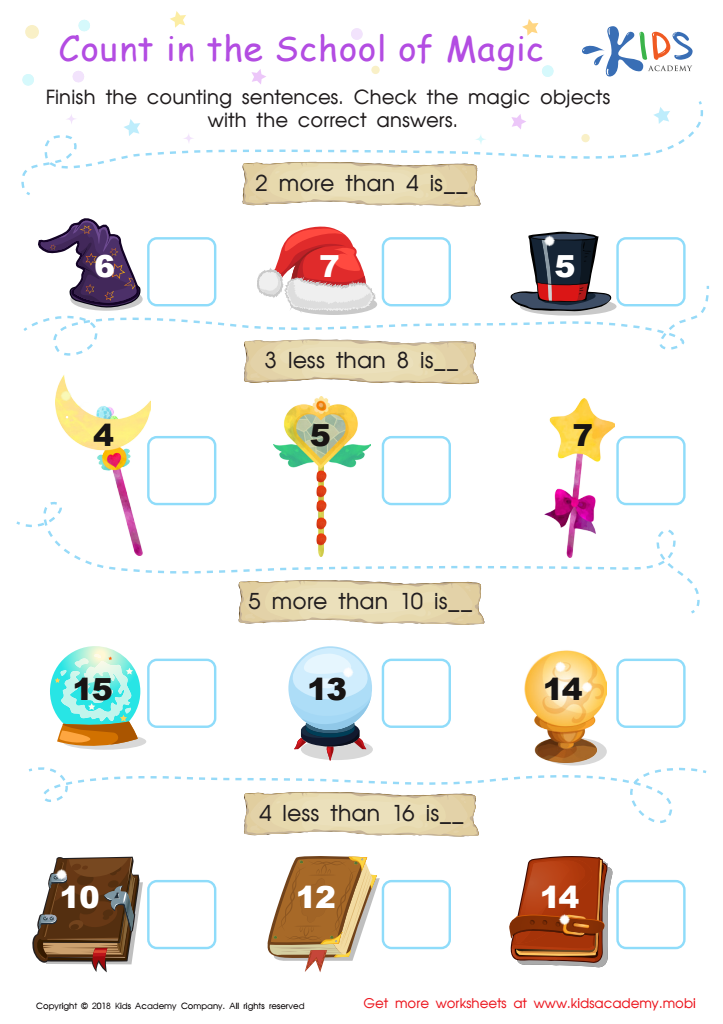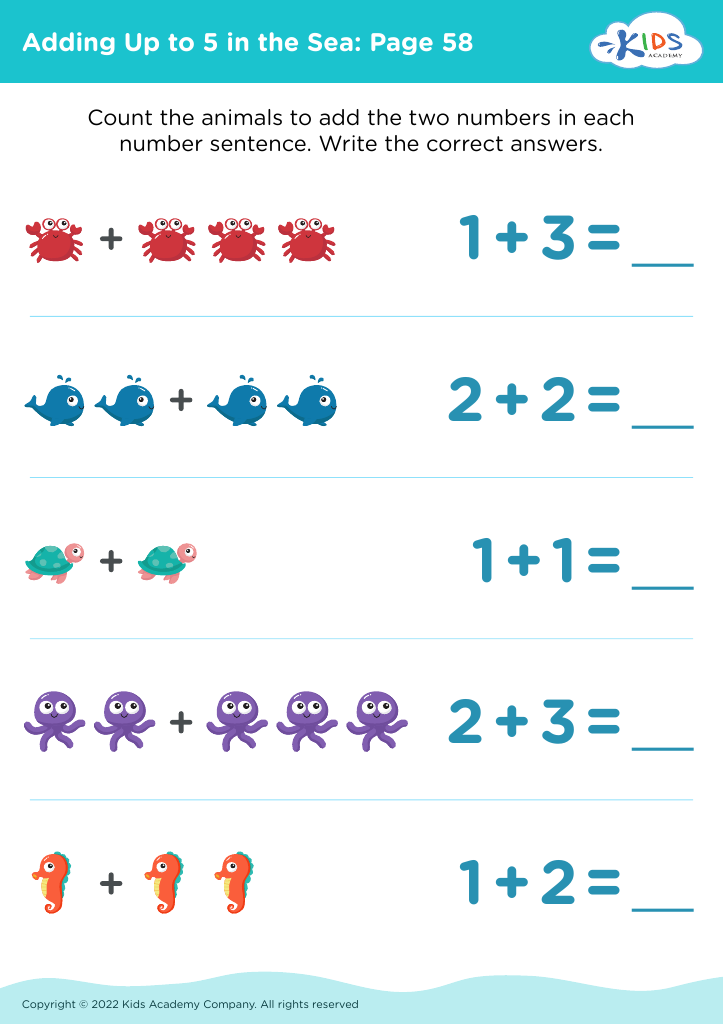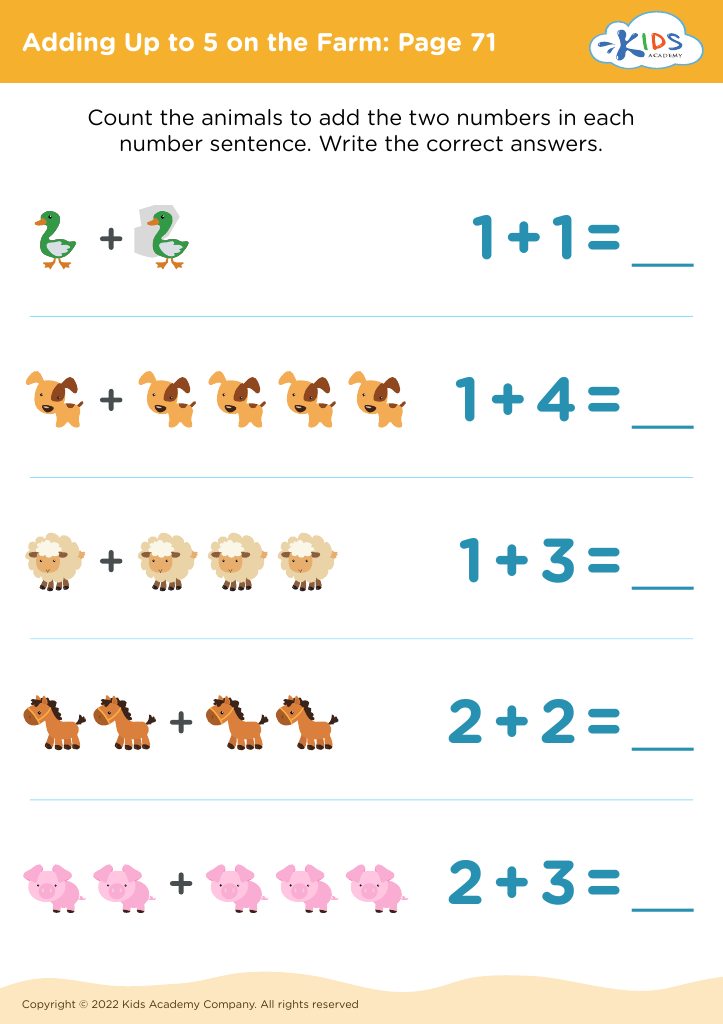Observational skills Addition Worksheets for Ages 3-6
3 filtered results
-
From - To
Enhance your child's early math journey with our "Observational Skills Addition Worksheets for Ages 3-6." Designed to foster essential observational skills, these engaging worksheets encourage young learners to notice details, patterns, and relationships between numbers. By integrating fun visuals and interactive exercises, children will practice addition while developing critical thinking and analytical abilities. Crafted for various learning styles, our worksheets cater to the unique needs of preschoolers and kindergarteners, making learning enjoyable and effective. Download our free resources today and watch your little ones build confidence in their math skills while sharpening their observational abilities! Perfect for home or classroom use!


Count in the School of Magic Worksheet
Observational skills are crucial for young children aged 3-6 as they lay the foundation for effective learning and development. For parents and teachers, nurturing these skills helps children make meaningful connections with their surroundings, leading to enhanced cognitive abilities.
Children with strong observational skills can notice details, patterns, and differences in their environment, which fosters critical thinking. For instance, when engaged in activities like sorting objects or exploring nature, they learn to identify attributes and relationships, boosting their mathematical awareness and enhancing their problem-solving capabilities.
Moreover, observed information also contributes to language development. As children articulate what they see and experience, they enrich their vocabulary and storytelling abilities. This interactive process encourages social skills as they learn to share observations and engage in discussions with peers and adults.
Incorporating observation-based activities not only promotes learning across various subjects – from science to art – but also cultivates curiosity and a lifelong love for learning. Therefore, parents and teachers should prioritize observational skill development, as these foundational abilities not only enhance academic performance but also shape well-rounded, confident individuals prepared for future challenges.


 Assign to My Students
Assign to My Students


















